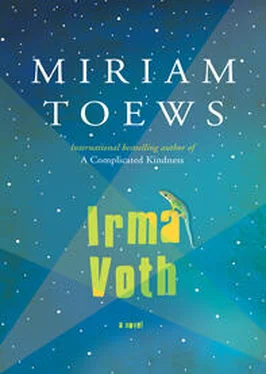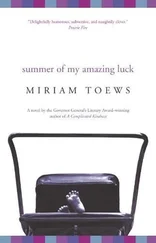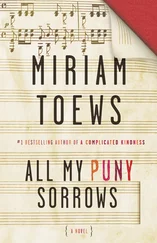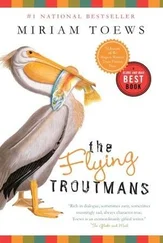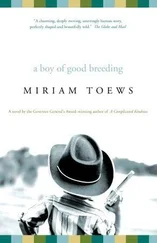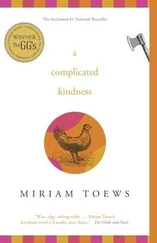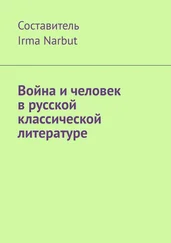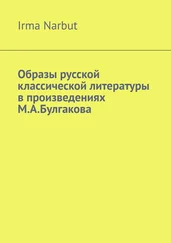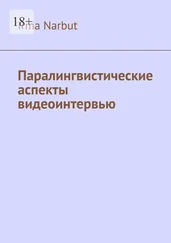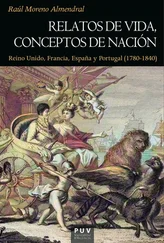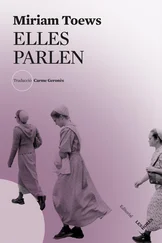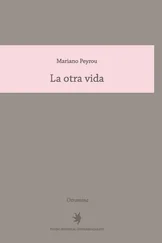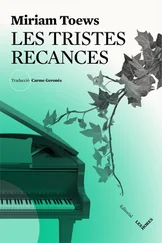According to my father, Jorge was more interested in searching for sensations in Chihuahua city than taking care of the cows and the corn in Campo 6.5. He had other reasons for not liking Jorge but the real reason was that I’d married a non-Mennonite. A long time ago, in the twenties, seven Mennonite men travelled from Manitoba to the Presidential Palace in Mexico City to make a deal. They’d been offered this land for cheap and they decided to accept the offer and move everyone from their colony in central Canada down to Mexico where they wouldn’t have to send their kids to regular school or teach them to speak English or dress them in normal clothing. Mennonites formed themselves in Holland five hundred years ago after a man named Menno Simons became so moved by hearing Anabaptist prisoners singing hymns before being executed by the Spanish Inquisition that he joined their cause and became their leader. Then they started to move all around the world in colonies looking for freedom and isolation and peace and opportunities to sell cheese. Different countries give us shelter if we agree to stay out of trouble and help with the economy by farming in obscurity. We live like ghosts. Then, sometimes, those countries decide they want us to be real citizens after all and start to force us to do things like join the army or pay taxes or respect laws and then we pack our stuff up in the middle of the night and move to another country where we can live purely but somewhat out of context. Our motto is from the “rebuke of wordliness,” which is from the Biblical book of James: Whosoever will be a friend of the world is the enemy of God.
I once made the mistake of asking my father if it didn’t make sense that in all those years from then to now some Mennonite girl would fall for a Mexican boy and want to marry him. It’s called integration, Dad, it’s not a big deal. I mean if you accept their cheap offer of land … But he had stopped listening to me ages ago. The last real thing we talked about was the absurdity of life on earth. He was thinking about something he’d read in an old newspaper that had somehow managed to float into our field from El Paso or somewhere. We were in the truck on our way to Cuauhtémoc and he asked me how I thought it was possible that a crowd of people could stand on the street in front of a tall office building and cheer a suicidal man on to his death by encouraging him to jump. I was surprised by the question and said I didn’t know. What does that say about us? said my dad. That we’re cruel, I said. Then my dad said no, he didn’t think so, he thought it meant that we feel mocked, that we feel and appear stupid and cowardly in the presence of this suicidal man who has wisely concluded that life on earth is ridiculous. And we want him to die immediately so that the pain of being confronted with our own fear and ignorance will also, mercifully, end. Would you agree with that? my dad asked. What? I said. I didn’t know what he was asking me. It’s a sin to commit suicide, I thought. I said no, I still think it means we’re cruel. My dad said no, it doesn’t mean we’re cruel. He got a little mad at me and stopped talking to me for a while and then as time passed never got back into the habit.
My father had lost his family when he was a little kid, when they’d been driven off their farm near the Black Sea. His parents and his sisters had been slaughtered by soldiers on a road somewhere in Russia, beside trees, and buried quickly in the ditch. My father survived by singing some songs, German hymns I think, for the soldiers, who thought it was cute, this little blond boy, but eventually the novelty of that wore off and they foisted him onto some other fleeing Mennonite family who adopted him and brought him to Canada to help with the animals and baling. He hated his adopted family and ran away when he was twelve to work on some other farm where he met my mother and eventually married her. That’s all I know about that because by the time it occurred to me to ask him questions about it he had stopped talking to me. I tried to get more details from my mother but she said she didn’t know any more than that either.
We’d had fun, me and him, you know, typical farm fun, when I was young. He made me a swing that I could jump from into hay and he understood my grief when my favourite chicken died. He even brought me to the fabric store to buy some flannel to make a burial suit of little trousers and a vest and hat for my chicken and he let me bury it outside my bedroom window rather than tossing it into the rubble fire like the other dead ones. But it was colossal and swift like the sinking of the Titanic the way all that disappeared when he moved us overnight to Mexico.
Two weeks after we moved here my mother took me to the doctor for the first time in Cuauhtémoc and told him that I thought I was dead and nothing she or my father said could convince me of the truth. I was thirteen years old, the same age that Aggie is now. My father stayed outside in the truck. The doctor spoke to me in Spanish and I didn’t understand him very well. His office was in a big barn and the nurse was his wife. He had a small revolver in his pocket but before he examined me he took it out and laid it on his desk. He asked me what my life was like when I was alive.
I don’t know, I said.
Is this your life after death? he asked me.
Yes, I said. I think so.
How did you die? he asked.
I don’t know, I said.
Food poisoning? he asked.
Maybe, I said. I don’t know.
Snake bite? he said.
No, I said.
Heart attack?
I’m not sure.
Do you feel that you were born and lived and then you died or that you have never lived at all? he asked.
I was born and lived and then died, I said.
So, he said, do you think that you’re in heaven?
I don’t know, I said.
What makes you feel like you’re dead? he said. Are you numb in some parts of your body?
No, I said. I don’t know.
Did you see yourself die? he asked.
Yes, I said.
How did you die? he asked.
I’m not sure, I said.
But you saw yourself die? he said.
Yes, I said.
In a dream? he said.
I don’t know, I said.
If you still feel that you are dead in six weeks will you please come back to see me? he said.
I looked at my mother and she nodded. She didn’t like his question about food poisoning. The doctor thanked her for bringing me to see him and patted her arm. He put his pistol back into his pocket. My father was still sitting in the truck, waiting for us. He asked my mother if I still thought I was dead.
I don’t know, she said.
Why is it so important to you whether I’m alive or not? I asked them.
It’s not whether you’re alive or not, said my father. Clearly you’re alive. It’s what you believe. He pinched my arm. Do you feel that?
I nodded.
You need to stop playing games, Irma Voth, he said.
Someday you’ll be a wife and mother, Irma, said my own mother. Will you come alive for that? I didn’t know what to tell her. How was I supposed to know? On the way home I put my head in her lap and she undid my braids and combed my hair with her fingers. I like to remember how that felt. She was so gentle. I still don’t understand how she managed to take out my tight braids without any tugging or pain. Irma, she whispered to me, just begin. I didn’t know what she meant. When we got back she stayed with me in my bed even though I was thirteen and rubbed circles on my back slowly.

Aggie and I sat on the fence and talked. We were surrounded by nothing but three farmhouses in a neat row, sky and corn. How are the boys? I asked.
Annoying, she said. We had two little brothers, Doft and Jacobo, who liked to connect everything with rope.
Читать дальше
